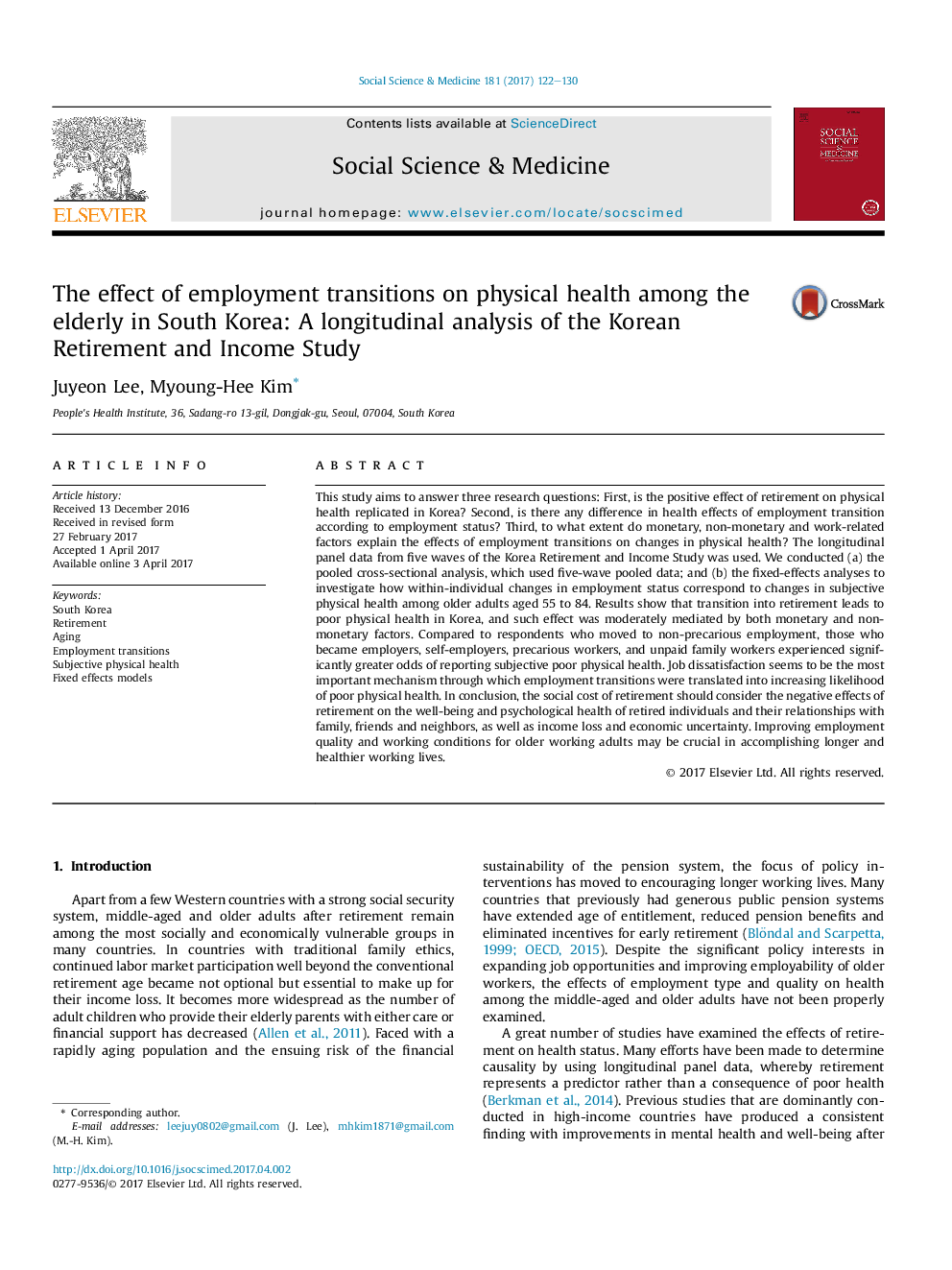| Article ID | Journal | Published Year | Pages | File Type |
|---|---|---|---|---|
| 5046605 | Social Science & Medicine | 2017 | 9 Pages |
â¢Retirement leads to decline in subjective physical health in South Korea.â¢Monetary and non-monetary factors mediate the negative effect of retirement on physical health.â¢Non-precarious workers experienced better subjective physical health than other employment status.â¢Job satisfaction mediates the association between employment status and health among older adults.
This study aims to answer three research questions: First, is the positive effect of retirement on physical health replicated in Korea? Second, is there any difference in health effects of employment transition according to employment status? Third, to what extent do monetary, non-monetary and work-related factors explain the effects of employment transitions on changes in physical health? The longitudinal panel data from five waves of the Korea Retirement and Income Study was used. We conducted (a) the pooled cross-sectional analysis, which used five-wave pooled data; and (b) the fixed-effects analyses to investigate how within-individual changes in employment status correspond to changes in subjective physical health among older adults aged 55 to 84. Results show that transition into retirement leads to poor physical health in Korea, and such effect was moderately mediated by both monetary and non-monetary factors. Compared to respondents who moved to non-precarious employment, those who became employers, self-employers, precarious workers, and unpaid family workers experienced significantly greater odds of reporting subjective poor physical health. Job dissatisfaction seems to be the most important mechanism through which employment transitions were translated into increasing likelihood of poor physical health. In conclusion, the social cost of retirement should consider the negative effects of retirement on the well-being and psychological health of retired individuals and their relationships with family, friends and neighbors, as well as income loss and economic uncertainty. Improving employment quality and working conditions for older working adults may be crucial in accomplishing longer and healthier working lives.
